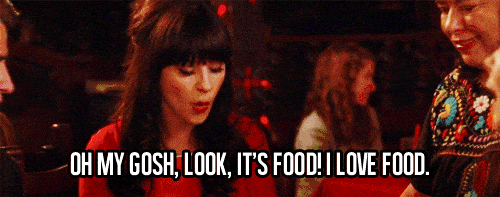You’re officially an after picture. You’ve bled, sweat and cried. You have consumed more broccoli than you care to admit and you’ve hit the goal– whether that’s a weight, a waist size, you got the girl/boy or some other goal.
This is the moment you’ve been dreaming of. Now what? What do you believe about weight maintenance?
Let’s get the diagnosis out here right away: the odds are stacked against us. According to Gary Foster, Ph.D., clinical director of the Weight and Eating Disorders Program at the University of Pennsylvania, almost 65% of dieters return to their pre-diet weight within 3 years. Statistics for “crash diets” are even more abysmal. But you aren’t a statistic. Just like you took control when you decided to lose weight, maintenance is entirely in your control. Today we’re going to explore what you need to do maintain all that work you put in.
First things First.
I don’t care how you got here. Whether you lost weight with low carb or low fat, the studies seem to indicate that you will have just as much opportunity to be successful in both weight loss and weight maintenance. Why do they both work? Great question that I plan on answering next week ;).
So if the path that got me here doesn’t, what does matter? Lucky for you beautiful reader, I have poured over the data and found three things that seem to predict success in weight loss maintenance.
1) Stop Romancing Food.

Adina talked a couple of weeks ago about her great break up with the scale and the difficulty with staying involved with that fickle bitch (clarification: the scale, not Adina). And if you’ve been reading my stuff for a while, you will know that as a Stoic and a Jedi (truth), I abhor emotional connections to inanimate objects that don’t have Apple logos on them.
Your emotional connection (or lack thereof) to food will predict your ability to successfully maintain your goal weight.
This study looked at two samples of weight losers from different sources and found that those who were able to sever their emotional ties to food were significantly more likely to both lose weight and keep it off. Now this is easier said than done, and I could write an entire article blog book on this subject. How can you know if you’re an emotional eater? If you say yes to some of these questions from Helpguide, you may be an emotional eater:
- Do you eat more when you’re feeling stressed?
- Do you eat when you’re not hungry or when you’re full?
- Do you eat to feel better (to calm and soothe yourself when you’re sad, mad, bored, anxious, etc.)?
- Do you reward yourself with food?
- Do you regularly eat until you’ve stuffed yourself?
- Does food make you feel safe? Do you feel like food is a friend?
- Do you feel powerless or out of control around food?
So what do I do if I’m an emotional eater?
Find something other than food to mourn or celebrate with.
Some suggestions: meditation, activities, time with loved ones or twerking against a wall (my personal go-to and works for mourning and celebrating).
Take the broccoli test.
When you’re hungry, ask yourself: “Am I hungry enough to eat broccoli right now?” If the answer is no, you’re eating for the wrong reasons (credit Adam Gilbert for this idea)
Identify the cue
Try to identify the emotional trigger that for you leads to emotional eating: is it boredom, anxiety, exhaustion or depression. Try to find something that scratches this itch that isn’t food. More on this here.
2) Know Thyself.

Socrates was once asked why he didn’t devote a significant amount of time to studying Greek mythology to which he replied his first pursuit was to “know myself”. The first pursuit is to be self aware. I feel like it’s becoming en vogue to become more mindful of ourselves and what we are feeling through meditation and other such practices. Ultimately, according the National Weight Control Registry, those who are successful at weight loss report to doing the following:
- 75% weight themselves at least once per week.
- 90% exercise on average 1 hour per day.
- 78% eat breakfast every single day.
Now any of these practices isolated are of dubious effectiveness for optimal health. Obsession with the scale can lead to worse consequences or even ineffective monitoring due to the scale’s inability to track body composition changes. Daily exercise could be overtraining for some and intermittent fasting (skipping breakfast) has been shown at least anecdotally to be effective for weight loss. So why bother citing these three items if they don’t necessarily work? What do they represent?
The Same Thing
 The easiest transition to maintenance will be when you don’t have to make any transition. It will be continuing to be mindful to perform the exact same actions that you did while you were losing weight. For these registry members that meant continued weigh ins for accountability, exercise sessions and healthy breakfasts.
The easiest transition to maintenance will be when you don’t have to make any transition. It will be continuing to be mindful to perform the exact same actions that you did while you were losing weight. For these registry members that meant continued weigh ins for accountability, exercise sessions and healthy breakfasts.
Like these losers, in my case there was literally no change in my behaviors, motivation, food intake or exercise patterns when I hit maintenance.
But Tim, Don’t you miss eating [insert food here]?
I oftentimes will say that I miss Pizza, Popcorn and Doritos. This is mostly in self deprecating jest to say that I can’t control myself around these foods. Truthfully my tastebuds and relationship with food have both been permanently altered and I don’t miss these things to the point of being willing to eat them. They are like a bad former relationship: though you may wax nostalgic for the good times you shared, but there’s no way I’d invite him or her back into your life even for an evening.
But Tim, what about cheat meals? I heard they’re great!
Stay tuned for next week for my extended opinion on this subject.
But Tim, will you come over and cook for me in a tank top?
I’m seriously considering doing a Kickstarter.com project for this because of all the requests. Thank you for all the interest, but not accepting appointments for this right now.
3) Don’t gain the weight back
Wait, do you mean to tell me that one of the best ways to maintain my weight loss is to not gain the weight back? This is mind blowing stuff!
Well thanks. Wait, that was sarcastic?
What I mean to say here is that it gets easier after time. This study found that after 2 years of successful maintenance, your chances of regain nearly cut in half and after 5 years, the chance cuts by over 70%. Every day you stay at your goal weight, your chances of relapse go down until it’s almost non existent.
But what can I do with that?
The time for the greatest vigilance is right after maintenance. This completely carries over to weight loss as well: the earlier in the process you are, the greater the importance for vigilance. This is one reason why I will frequently advocate a Whole 30 for anyone interested in starting a weight loss journey and why I try and reply to requests for help within 24 hours of receiving them: you need to strike while the fire is hot. Not only that, but if you can make it through a Whole 30, the results will speak for themselves and serve as motivation to make it a Whole 60 or a Whole 500 or a Whole Lifetime if that is the optimal lifestyle for your goals.
So what’s your biggest fear regarding maintenance. For you successful Scale Warriors, what has worked for you in maintenance? Let us know in the comments!

 “TinierTim” Bauer works in marketing as a professional storyteller who also teaches others to tell their stories. He is a father of two beautiful girls, aged 8 and 5. He lost his first 200 pounds in just 374 days and his greatest accomplishments include running his first triathlon 18 months to the day from starting his journey, having his weight loss described by his then 6 year old daughter as a “metamorphosis” (he’s a butterfly now) and the fact that his daughters are now able to sit in his lap without his belly getting in the way and wrap their arms completely around him. He blogs at TinierTim.com and can be found anywhere people are being Social @TinierTim including
“TinierTim” Bauer works in marketing as a professional storyteller who also teaches others to tell their stories. He is a father of two beautiful girls, aged 8 and 5. He lost his first 200 pounds in just 374 days and his greatest accomplishments include running his first triathlon 18 months to the day from starting his journey, having his weight loss described by his then 6 year old daughter as a “metamorphosis” (he’s a butterfly now) and the fact that his daughters are now able to sit in his lap without his belly getting in the way and wrap their arms completely around him. He blogs at TinierTim.com and can be found anywhere people are being Social @TinierTim including 

You must be logged in to view comments.